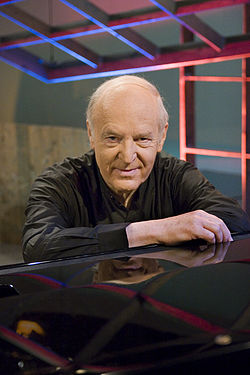 | 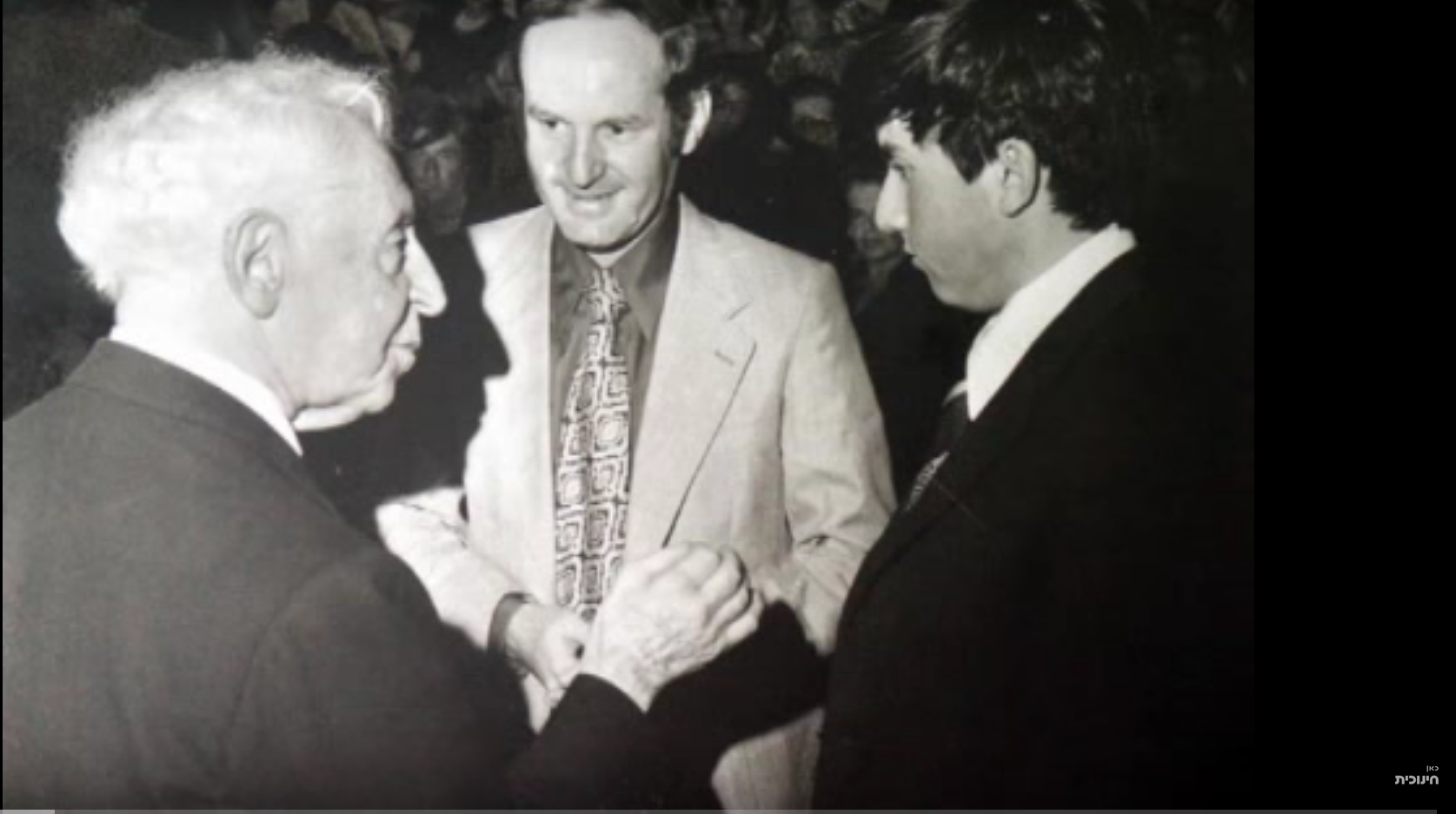 |
With a list of the episodes and their musical content.
Created by Ernest Davis
Intermezzo with Arik, אינטרמצו עם אריק was a weekly, half-hour, television program on musical topics which aired on Israeli Education Television from 2003 until 2019. More than 480 episodes were shown, featuring outstanding musicians from all over the world and discussing musical topics of every kind.
Hebrew Wikipedia page for "Intermezzo with Arik"
אריה ״אריק״ ורדי Arie "Arik" Vardi is the host of every episode of Intermezzo with the very doubtful exception of one episode in which he is nominally the guest. Vardi has had a distinguished career as pianist, conductor, competition judge, and teacher. In 2017 he received the Israel Prize for his achievements as a performing artist, his enormous contribution to the advancement and subsistence of classical music culture in Israel and his impact on the development of Israeli music and Israeli musicians abroad.
Vardi was born in 1937 in Tel Aviv. He graduated from the Rubin Academy of Tel Aviv University and at the Musik Akademie in Basel, where his teachers included Paul Baumgartner, Pierre Boulez, and Karl Stockhausen. (He also obtained a law degree.)
He began his concert career at age fifteen, winning the Chopin Competition in Israel and the George Enescu Intenational competition in Bucharest. He has performed in Europe, Russia, the United States, Latin America, the Far East working with many distinguished conductors including Zubin Mehta, Gustavo Dudamel, and Kurt Masur.
Vardi was Professor of Piano and Head of the Piano Department at the Rubin Academy, and later became Head of the School. He currently teaches at the Hochschule für Musik in Hanover and at the Buchman-Mehta School of Music in Tel Aviv. His students include many leading concert pianists, conductors, and musicians; they include Yefim Bronfman, Claire Huangci, Lahav Shani, and Yeol Eum Son .
Biography in English Wikipedia.
Biography in Hebrew Wikipedia.
Video interview with Vardi on his receipt of Israel Prize by Yael Czerny (Hebrew).
 |  |
In a typical episode of Intermezzo there is one guest or a few guests, and live performances of fairly short pieces alternate with discussion between Vardi and the guest(s). There are also often video clips of recorded musical performances. Most episodes are filmed on set in the studio. Every episode begins with a short introduction and ends with a short summary by Vardi in Hebrew addressed to the audience. Interviews are carried out either in Hebrew or in English or occasionally both, depending on the guests. (In a couple of cases, there is an interpreter from Russian or Chinese.)
But all this can vary. (The one absolutely reliable constant of Intermezzo is Vardi himself.) Some episodes are filmed at other locations, for one reason or another. A few have no guests; some have many guests. Many, such as interviews of conductors, have no live music, and a few have no music at all.
Numerous episodes feature live performances by choral groups. (The Moran Youth Choir is a particularly frequent guest.) There are, however, only three regular episodes that have live performances by full orchestras: The episodes featuring the Bach Concerto for Two Violins and the Bach Concerto for Two Keyboards with Alma Deutscher and Tanja Zhou; and the episode featuring the Prokofiev Piano Concerto 3 with David Gorvitz. There have also been a pair of recent programs, not in the usual Intermezzo series: A 52-minute program with Harmony Zhu playing Beethoven's 2nd piano concerto and Maxim Lando and Vardi playing Bach's concerto for two pianos; and a 44-minute episode with Yoav Levanon playing Rachmaninoff's 2nd piano concerto (plus encores).
The duration of episodes varies rather widely, from the standpoint of someone used to the strict scheduling of American TV. Most episodes are between 25 and 28 minutes. However, some are as short as 21:30; and a couple are longer than 30 minutes. (How that worked out in terms of the TV schedule, I can't guess; perhaps they were cut.)
Because of the format and the limited time, most pieces that are performed live are short, between 2 and 7 minutes. Longer pieces, when performed, are cut or excerpted. Clips of orchestral performances are almost always short excerpts of at most 3 minutes and sometimes less than 1 minute. It is notable, for instance, that though there is a lot of Chopin, it is almost always the mazurkas (a particular favorite), preludes, waltzes, and nocturnes; the great longer pieces — the ballades, scherzos, impromptus, and polonaises — are rarely played, and when played are severely pruned. A number of episodes are devoted to the discussion of a single long piece — the Kreutzer Sonata, , the Archduke Trio, the Goldberg Variations, and so on, but, necessarily, these are presented in excerpts.
Theme tunes: The theme tune, played at the beginning and end, is "Reconnaisance" from Schumann's Carnaval, in the earliest episodes (2003-2006) then, in later episodes (2006-2016), the last movement of Beethoven's "Tempest" sonata; and then, in the final episodes (2016-2018), Brahms Intermezzo Op. 117 No. 2.
All that said, there are two primary focuses; first, the music scene in Israel; second, classical instrumental music, particularly piano music, between Bach on the one hand and Stravinsky and Bartok on the other.
Poem: I have also written a short poem about Intermezzo.
Some guests are simply foolproof. If a musical interview show is lucky enough to book András Schiff or Murray Perahia or Robert Levin or Jessye Norman, then the producer and the host can rest easy, confident that they will have a great episode to show. Or at least so it seems to a naïve viewer like myself, who has no idea what is actually involved in putting together a show like this. I've already mentioned Alma Deutscher, who in addition to being an amazing musical prodigy as composer, pianist, and violinist, is a preternaturally fine interview — poised, articulate, and charming.
The late Israeli composer
André Hajdu was a frequent guest; those episodes are reliably
excellent. Hajdu was a remarkable man:
He had survived the Holocaust. After the war he assisted Kodaly in his study of
gyspy music. After the Hungarian revolution, he
escaped to Paris and studied with Darius
Milhaud and Olivier Messaien
and had been part of the artistic and cultural Parisian scene of the time.
In 1966 he emigrated to Israel, became orthodox, and
wrote and taught music.
His modernistic tastes and his analytical point of view contrasted with
Vardi's romanticism;
and in his gentle voice he expressed his opinions sharply
and pungently, in a way that made for discussions that were particularly
fruitful and enlightening.
There are about a dozen "Puzzle" episodes (my term), in which Vardi plays
some obscure pieces and the guests are invited to comment on its quality
and to guess at the place and date of the composition, or even the composer.
These are consistently interesting; the music is, necessarily,
unknown, and the discussion brings out interesting aspects of musical analysis.
Many episodes feature children or teen-agers,
sometimes in interviews, sometimes
in master classes. Vardi is a superb teacher, and we get to see a bit of how
that is done. (There are also six of Vardi's
master classes on YouTube.)
On the other hand, one
episode in which Ariel Lanyi, prodigy and enfant terrible,
plays Schubert's Moment Musicaux #3, but refuses to admit that the piece has
any musical merit, or indeed that Schubert has any merit as a composer, is
almost comically awful.
A number of episodes are extremely interesting as historical discussions.
(Overall, Intermezzo must be a significant resource for the history
of music in Israel.) In particular there is a two episode series on the
remarkable history of HaTikvah, the national anthem of Israel, with
musicologist Astrith Balsan.
(Part I on the
history before 1948;
Part II, on the
history since 1948.)
There are many, many episodes of all kinds where engaging discussion with articulate,
knowledgeable guests alternates with beautiful music.
Shirley Brill and Jonathan Aner play the Poulenc clarinet sonata.
Awadagin Pratt plays Couperin, Bach, and Fred Hersch.
Yuval Admoni and Tami Kanazawa play four-hand piano music by Bizet,
Ravel, and Akira Miyoshi.
The soprano
Inas Masalha
sings Rachmaninoff, Ravel, Gunnar de Frumerie, Fairuz, and African-American
folksongs. The episode
העפרוני
[The Lark] is a particular favorite of mine, mostly because of the warm
chemistry among the three generations of women guests associated with the
Ephroni choral group: Shelley Berlinski, Maya
Shavit, Anat Efrati, and Zohar Urion.
I could go on for a long time. Look at the
list of episodes, and judge for yourself.
I am delighted to say that in September 2022, Tal Samnon posted many
or all of the episodes on
YouTube account.
together with many other recordings of Arie Vardi.
Many thanks to him to making these available again.
Reponsibility for this page and its content falls entirely on its creator
Ernest Davis.
Davis does not hold copyright on any of the images here;
they are posted courtesy of Arik Vardi.
Gone and back again
In roughly October 2021 and most of the episodes of "Intermezzo"
that were posted on YouTube by Israel Educational TV became now blocked from
viewing in the United States and Germany; no doubt also in other countries.
The Israeli government closed Israel Educational TV a couple of years ago,
and replaced it by a channel that shows only children's programming; this is
some kind of consequence of that.
A few pictures (click to enlarge)
Jessye Norman and Vardi
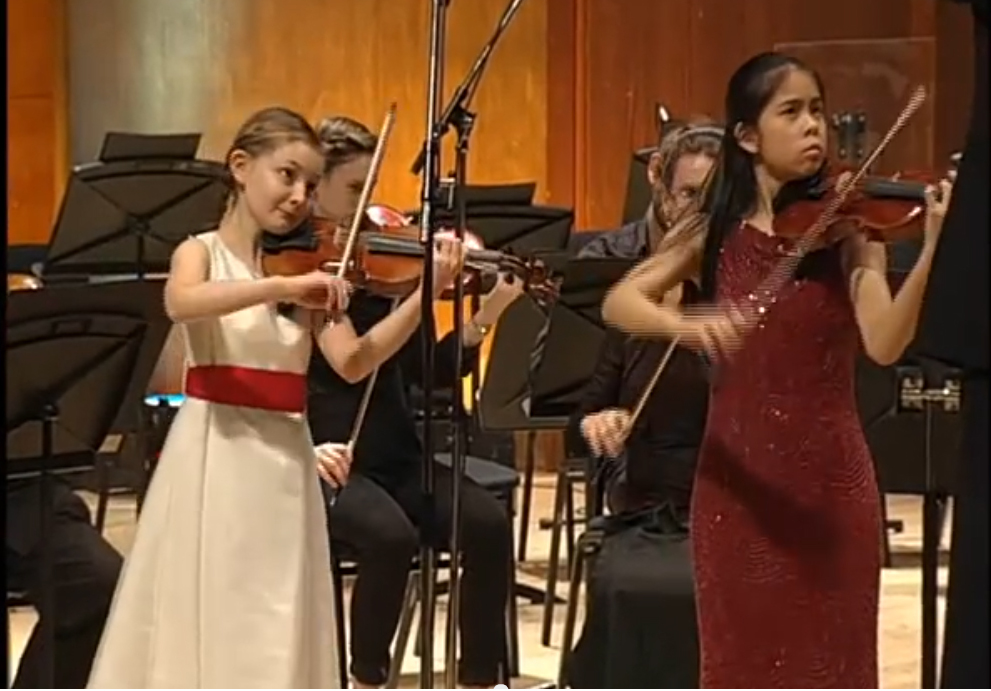
Alma Deutscher and Tanja Zhou
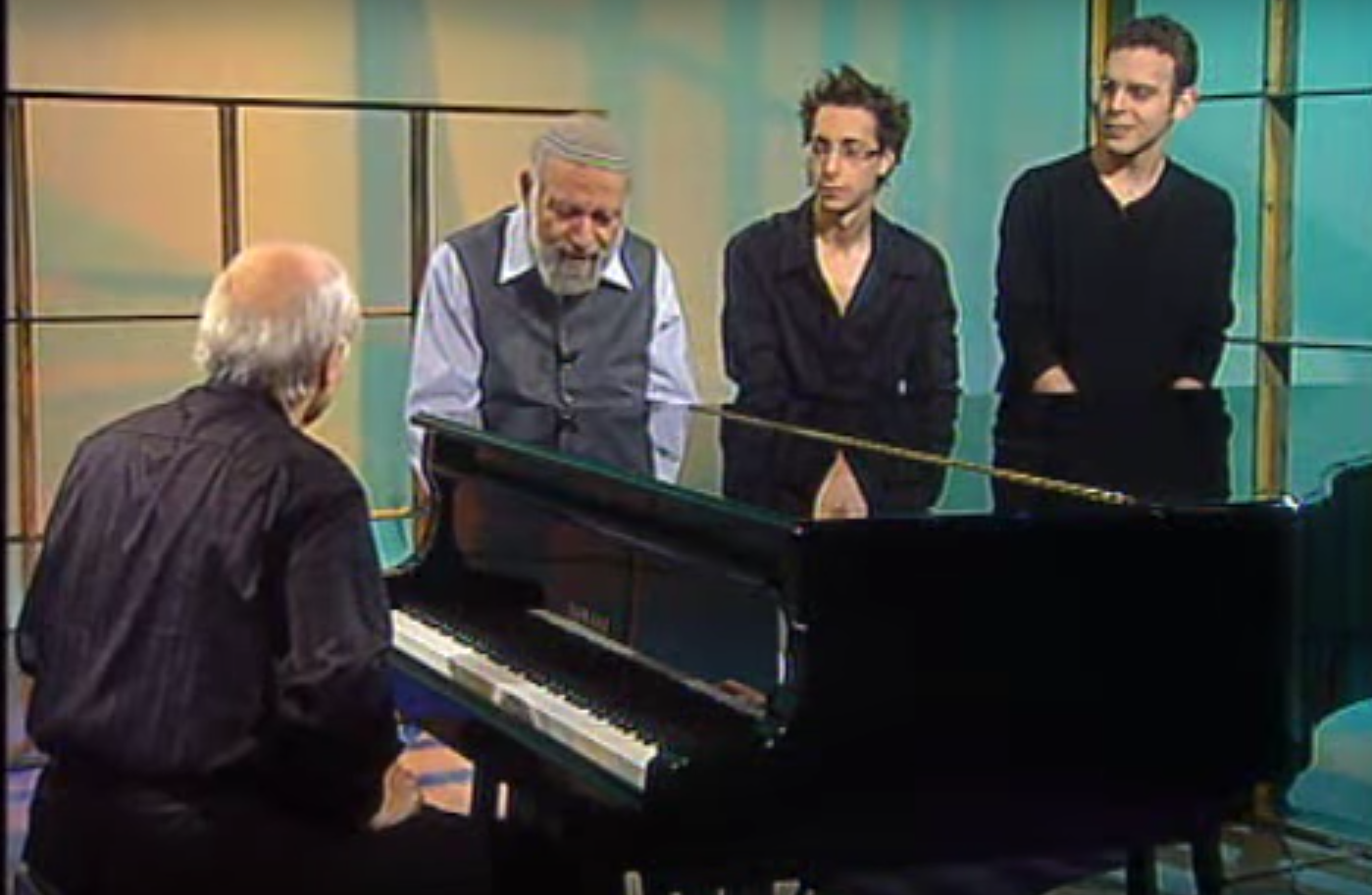
Arik Vardi, Andre Hajdu,
Yuval Shapira, and Tal Soker
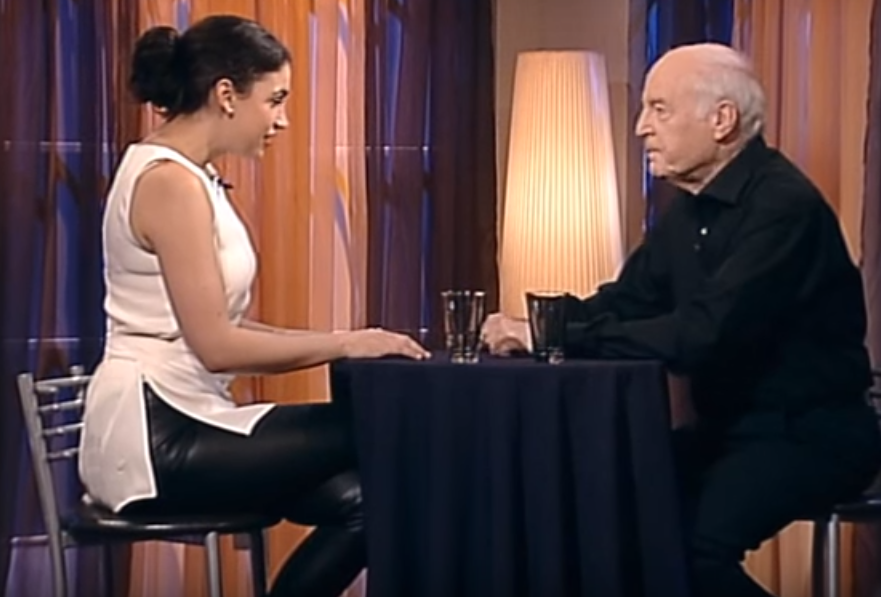
Olga Scheps and Arik Vardi
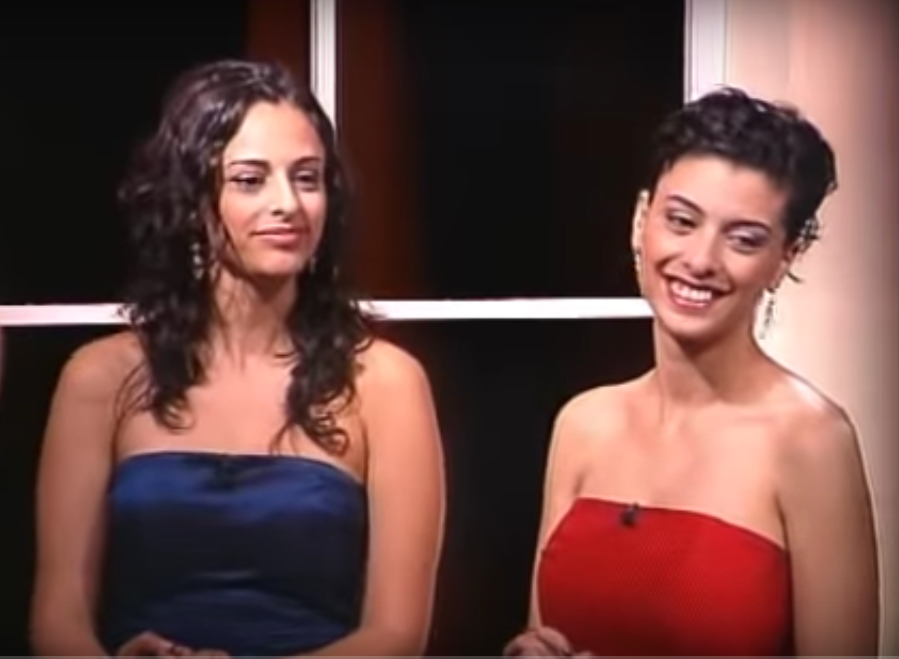
Hila Fahima and Yif'at Weisskopf
Sulamot choral group
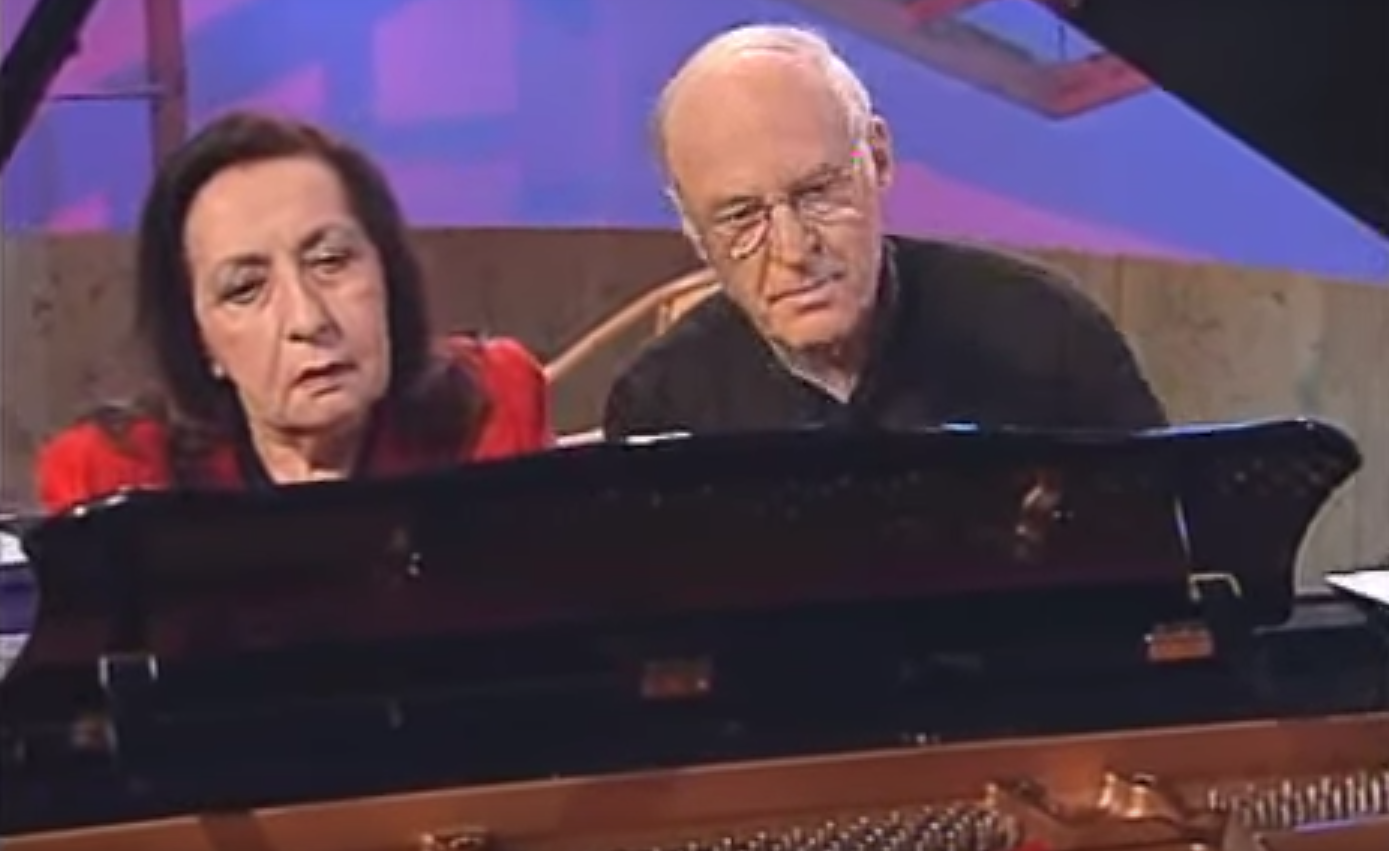
Pnina Saltzman and Vardi
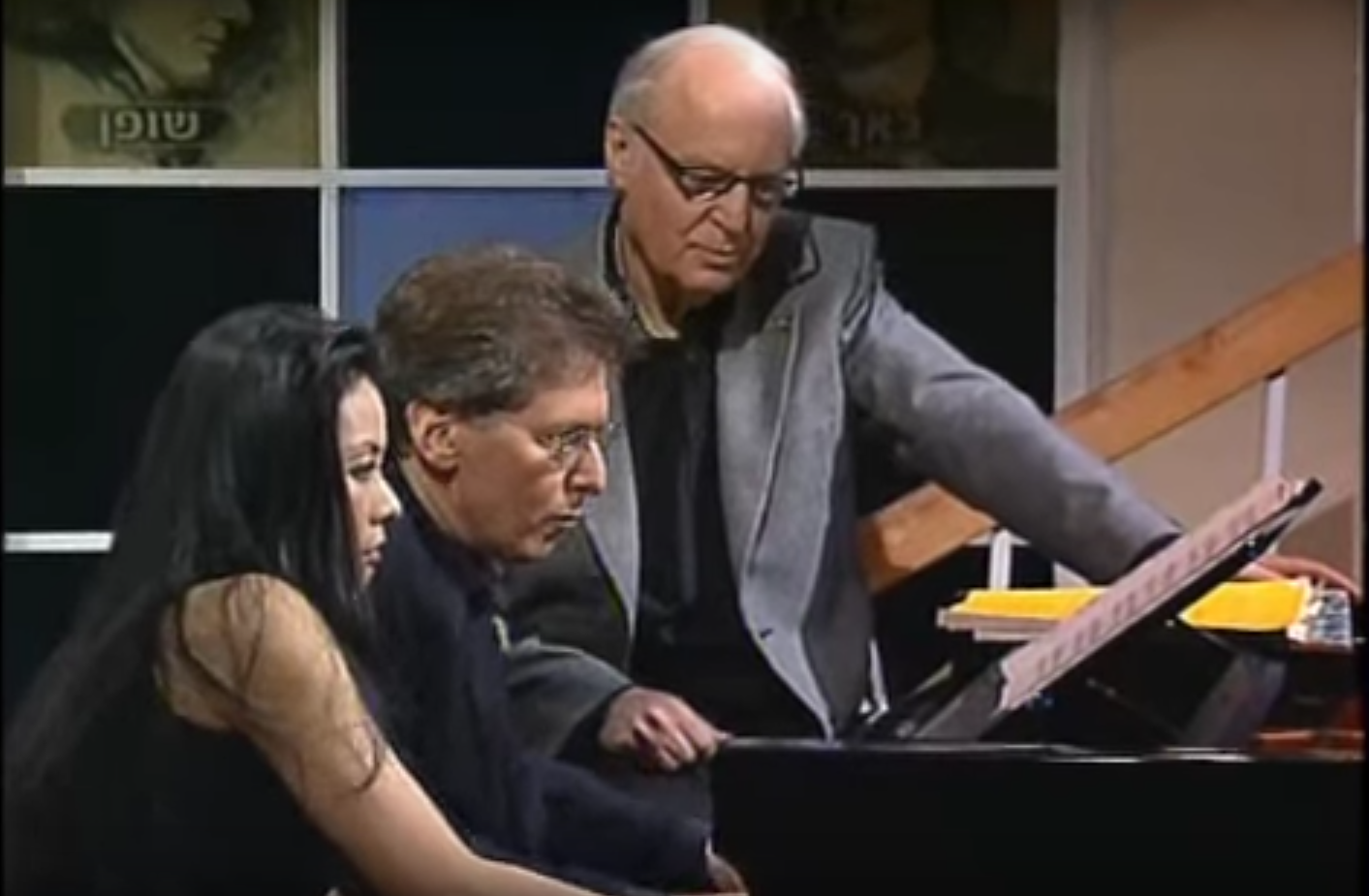
Ya-Fei Chuang, Robert Levin, and Vardi
Vardi and Itzhak Perlman
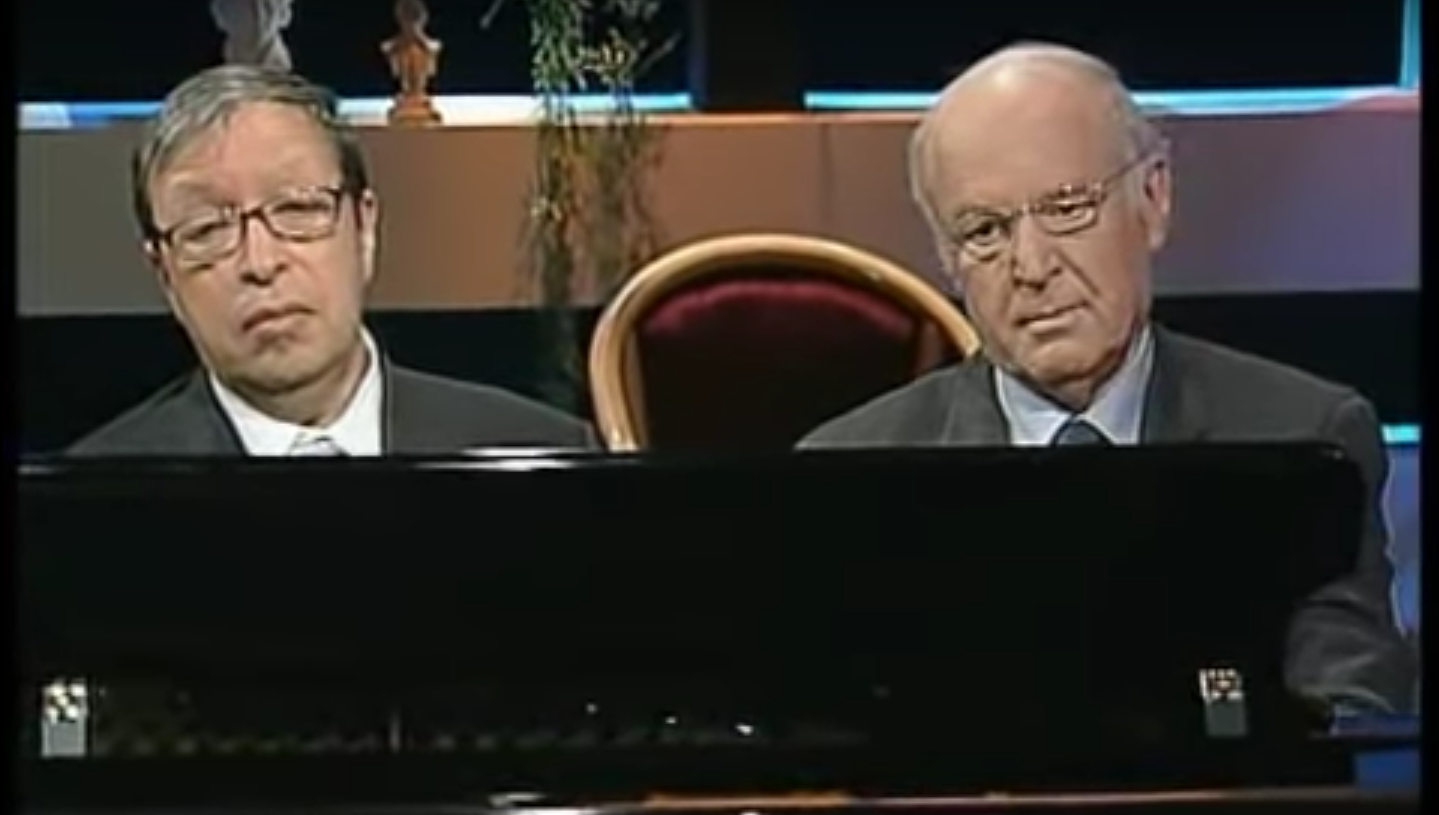
Murray Perahia and Vardi
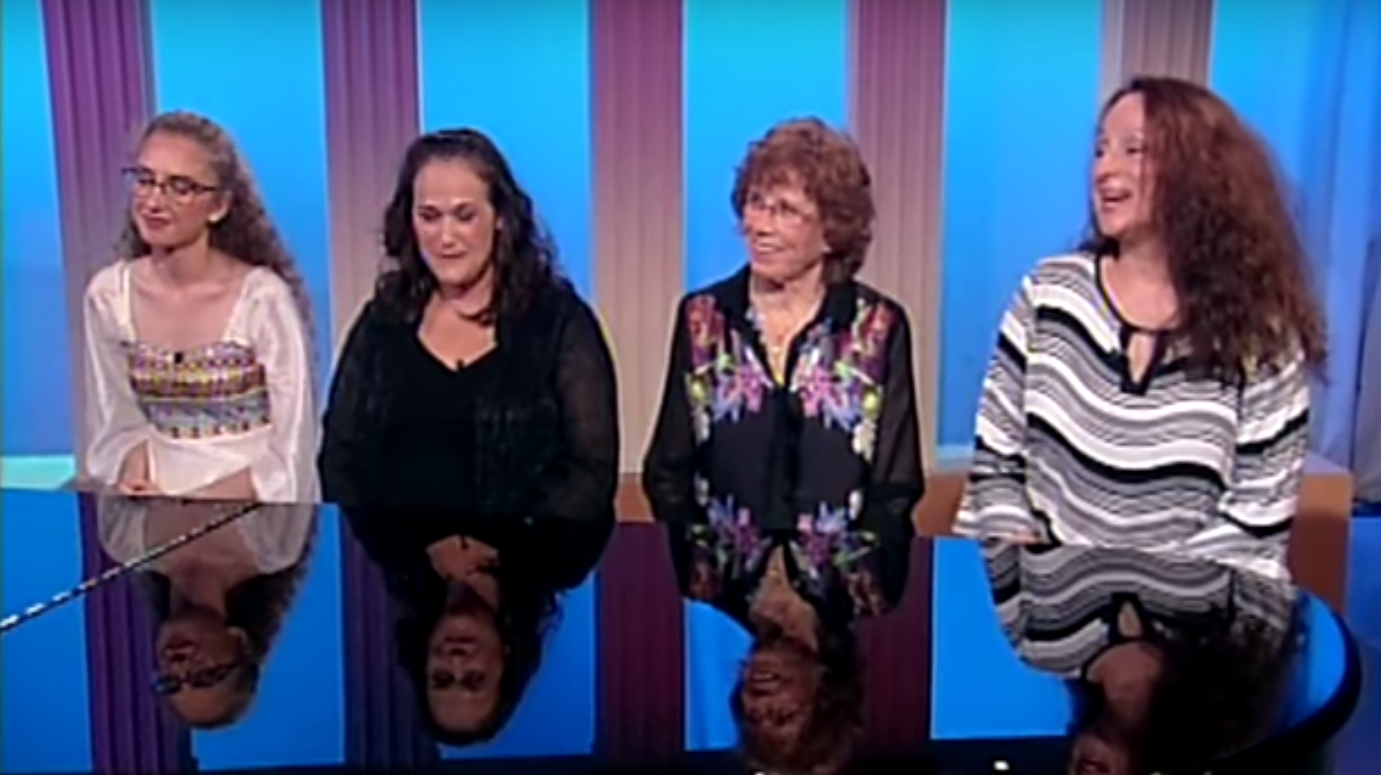
Zohar Urion, Shelley Berlinski,
Maya Shavit, and Anat Efrati